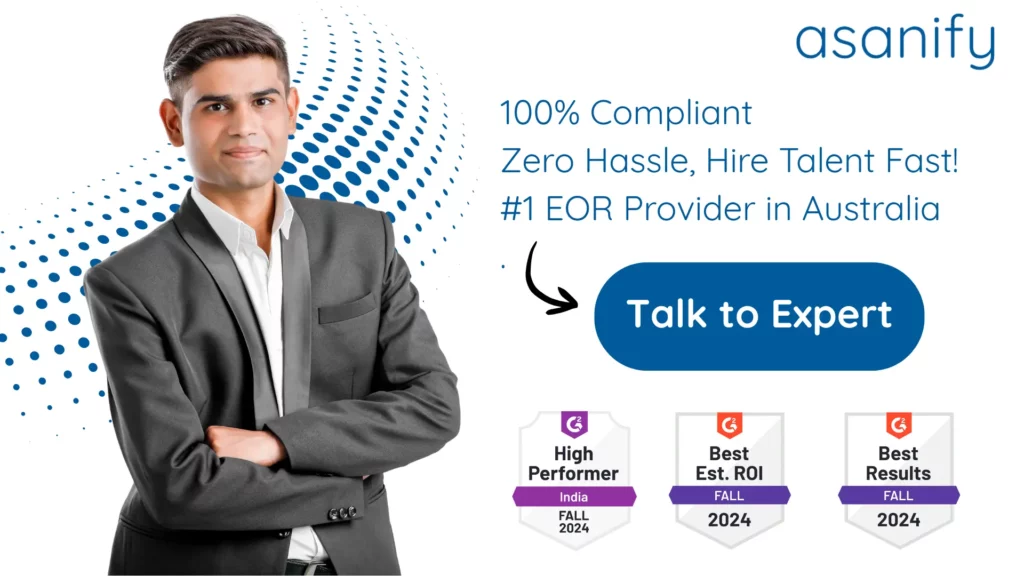Australia in 2025 is one of the most appealing destinations for international businesses looking to expand into the Asia-Pacific region. With a strong and stable economy, world-class infrastructure, transparent legal framework, and highly skilled workforce, the country presents diverse opportunities in industries such as technology, finance, healthcare, education, energy, and mining.
Major hubs like Sydney and Melbourne dominate the corporate and financial landscape, while Brisbane and Perth have thriving ecosystems in resources, energy, and trade. Emerging regional cities are also attracting foreign investments in manufacturing, technology, and research. For companies aiming to register a business in Australia, the country offers a combination of business-friendly policies and access to major global markets like China, India, and Southeast Asia.
This detailed guide will walk you through market entry options, business structures, registration steps, key documents, costs, post-incorporation compliance, and the benefits of leveraging Employer of Record (EOR) services for fast, risk-free expansion.
Table of Contents
- Exploring Your Market Entry Options in Australia
- Business Structures You Can Choose From
- Comparing Business Structure Options
- How to Choose the Right Business Model for Your Operations
- Step-by-Step Guide to Company Registration in Australia
- Key Documents Required to Register Your Australian Company
- Post-Incorporation Essentials You Shouldn’t Ignore in Australia
- Additional Business Licenses and Registrations You Might Need in Australia
- Timeframe to Set Up a Business in Australia
- What Does It Cost to Incorporate a Company in Australia?
- Obstacles Global Founders May Face While Setting Up in Australia
- Incorporating as a Foreign-Owned Company: A Special Path
- Employer of Record: A Simpler Way to Hire in Australia Without Incorporation
- Why Asanify is the Ideal Partner for Global Companies Entering Australia
- Summary & Final Takeaways
- FAQs
Exploring Your Market Entry Options in Australia
Global companies looking to establish a presence in Australia typically consider two main strategies:
Incorporating a Local Business Entity
Forming an Australian company gives you full operational control and legal recognition. You can hire employees, sign contracts, invoice local clients, open corporate bank accounts, and participate in government tenders. Incorporation is ideal for businesses planning long-term operations or regional headquarters in Asia-Pacific.
Hiring Through an Employer of Record (EOR)
For companies testing the market or looking to build a small team quickly, an Employer of Record (EOR) provides a fully compliant hiring solution without the need for entity setup. The EOR acts as the legal employer for your Australian workforce, handling payroll, tax, and benefits. This allows your business to focus on operations, sales, and market validation while minimizing risk and administrative effort.
Business Structures You Can Choose From
Australia offers multiple business structures to accommodate different operational goals and ownership preferences:
- Proprietary Limited Company (Pty Ltd) – The most common choice for foreign investors; offers limited liability and flexibility. Requires at least one Australian-resident director.
- Branch Office – Operates as an extension of a foreign company and is fully liable for its Australian operations; requires registration with ASIC.
- Partnership – Formed by two or more partners sharing responsibilities, profits, and liabilities. Suitable for smaller ventures or joint projects.
- Sole Trader – Simplest structure for individual entrepreneurs but offers no liability protection.
- Representative Office – Used for market research, liaison, or non-commercial activities; cannot generate revenue in Australia.
Comparing Business Structure Options
| Structure | Ownership | Liability | Taxation | Best For |
| Pty Ltd | 1+ shareholders | Limited | Corporate tax | SMEs, startups, and foreign subsidiaries |
| Branch Office | Foreign parent | Parent liable | Corporate tax | Companies extending operations from abroad |
| Partnership | 2+ partners | Shared | Personal/partnership tax | Joint ventures or professional services |
| Sole Trader | Single owner | Unlimited | Personal income tax | Small or solo ventures |
| Representative Office | Foreign parent | Parent liable | None | Market research and liaison activities |

How to Choose the Right Business Model for Your Operations
Selecting the best structure requires analyzing your business size, industry, risk appetite, and long-term plans:
- Proprietary Limited (Pty Ltd) is preferred for most foreign companies because it allows independent operations, limited liability, and easier access to financing.
- Branch Offices are ideal if you want to directly extend your foreign operations without forming a separate legal entity, but they carry higher parent company liability.
- Representative Offices suit businesses focused on research or market assessment before a full launch.
- EOR solutions are best for rapid entry, pilot teams, or small-scale hiring without administrative complexity.
Suggested Read: Employer of Record Australia: A Comprehensive Guide
Step-by-Step Guide to Company Registration in Australia
- Select your business structure based on operational goals and compliance requirements.
- Choose a unique company name and check its availability via the Australian Securities and Investments Commission (ASIC).
- Appoint company officers, including at least one Australian-resident director and optionally a company secretary.
- Prepare and lodge the company constitution or adopt replaceable rules for governance.
- Register the company with ASIC to obtain your Australian Company Number (ACN).
- Apply for an Australian Business Number (ABN) and register for Goods and Services Tax (GST) if your expected revenue exceeds AUD 75,000 annually.
- Open a corporate bank account to deposit share capital and manage company finances.
- Register for Pay As You Go (PAYG) withholding for employee income tax deductions.
- Set up Superannuation contributions for employees to comply with retirement requirements.
- Acquire any state or industry-specific licenses or permits required for your business activity.
When all documentation is prepared correctly, registration usually takes 1–3 weeks.
Key Documents Required to Register Your Australian Company
- Passports or ID documents for all directors and shareholders
- Residential proof for directors and shareholders
- Proposed company name and details of shareholding structure
- Signed director consent forms and shareholder agreements
- Company constitution or confirmation of replaceable rules
- ASIC and ABN registration forms
- Bank account setup documentation and initial capital deposit
- Any relevant state or sector licenses
Post-Incorporation Essentials You Shouldn’t Ignore in Australia
Once your company is registered, ongoing compliance is critical:
- Register for GST if annual turnover exceeds AUD 75,000
- File annual returns with ASIC and maintain corporate records
- Deduct and remit PAYG withholding for employee income taxes
- Contribute to Superannuation for all eligible employees
- Maintain proper accounting, financial statements, and auditing if required
- Ensure compliance with the Fair Work Act and National Employment Standards (NES)

Additional Business Licenses and Registrations You Might Need in Australia
Depending on your sector and location, you may require:
- State or territory business permits
- Import/export licenses for trade and customs clearance
- Construction, finance, healthcare, or education-specific permits
- Occupational health and safety (OHS) registrations for regulated environments
Timeframe to Set Up a Business in Australia
| Step | Estimated Duration |
| Company name reservation | 1–2 business days |
| ASIC registration and ACN issuance | 3–5 business days |
| ABN and GST registration | 3–5 business days |
| Bank account setup and payroll registration | 5–7 business days |
| Total Time to Register | 1–3 weeks |
What Does It Cost to Incorporate a Company in Australia?
- ASIC registration fees: Approx. AUD 512
- ABN and GST registration: Free
- Legal and accounting support: AUD 1,000–3,000
- State or industry licenses: AUD 200–1,000
- Miscellaneous costs for bank setup and compliance: AUD 100–500
Total expected cost: AUD 1,500–4,500, depending on the complexity and professional services used.
Obstacles Global Founders May Face While Setting Up in Australia
- Requirement for at least one Australian-resident director
- Navigating multi-level taxation including GST, PAYG, and Superannuation
- State-specific licensing and regulatory requirements
- Banking setup challenges for foreign shareholders due to strict KYC norms
- Higher operational and labor costs compared to other Asia-Pacific markets
Incorporating as a Foreign-Owned Company: A Special Path
Foreign companies can operate in Australia as:
- Wholly owned Proprietary Limited companies (Pty Ltd)
- Branch offices of the foreign parent company
- Representative offices for non-commercial purposes
Australia allows 100% foreign ownership in most industries, but sectors like telecom, aviation, and finance may require additional licenses or government approvals.

Employer of Record: A Simpler Way to Hire in Australia Without Incorporation
Entering the Australian market does not always require setting up a local legal entity. For many global companies, especially those exploring market potential or launching pilot projects, an Employer of Record provides a fast and fully compliant way to hire employees in Australia without the cost, time, and complexity of full incorporation.
From a legal perspective, the EOR acts as the official employer of your Australia-based workforce. It manages employment contracts, payroll, tax withholdings, and mandatory contributions like superannuation, while your company retains full control over daily operations, work assignments, and performance management.
This model is ideal for:
- Testing the Australian market before committing to a full entity setup
- Running short-term or project-based teams for technology, sales, or services
- Hiring remote employees across multiple Australian states without separate registrations
- Quickly expanding into the Asia-Pacific region without the administrative burden of incorporation
Using an EOR also helps foreign companies overcome common challenges such as:
- Drafting Australia-compliant employment agreements and offer letters
- Managing federal and state payroll taxes, including PAYG withholding
- Registering and contributing to superannuation for employee retirement benefits
- Complying with statutory employee entitlements like annual leave, sick leave, and long service leave
- Navigating the Fair Work Act and National Employment Standards (NES) to avoid misclassification and penalties
By leveraging an EOR, businesses minimize the risk of non-compliance, worker misclassification, and complex tax obligations, while achieving fast and cost-effective market entry into Australia.
Suggested Read: Understanding Labour Laws in Australia: Key Regulations, and Compliance Tips
Why Asanify is the Ideal Partner for Global Companies Entering Australia
Asanify offers end-to-end solutions for international businesses expanding into Australia, providing both full company incorporation and Employer of Record (EOR) services. For companies planning long-term operations, we manage the entire process:
- Registering entities such as Proprietary Limited (Pty Ltd) companies and meeting ASIC requirements
- Obtaining an Australian Business Number (ABN), GST registration, and PAYG setup
- Handling payroll, superannuation, and employee tax contributions across multiple states
- Managing ongoing HR compliance, accounting, and statutory employee benefits
- Guiding companies through labor regulations, industry-specific licensing, and annual reporting obligations
If you are not ready to incorporate, our EOR solution allows you to hire Australian employees within just a few days. Asanify takes care of employment contracts, payroll processing, taxes, and statutory benefits, ensuring your team operates legally and compliantly without administrative overhead.
We have successfully helped clients across North America, Europe, Asia, and the Middle East establish teams in Australia efficiently and without risk. Whether you are a startup testing market demand or a multinational deploying a regional team, Asanify makes your Australian expansion seamless and fully compliant.
Summary & Final Takeaways
Australia in 2025 offers immense opportunities for global companies in technology, finance, energy, healthcare, and services. Businesses have two main options for market entry: incorporate a local entity or hire through an Employer of Record (EOR).
If your goal is to establish a long-term presence, raise capital, or manage local operations directly, forming a Pty Ltd company is the best approach. On the other hand, if you want rapid entry, market testing, or small team hiring without the administrative burden of incorporation, an EOR allows you to start operations immediately while staying fully compliant with Australian labor regulations.
FAQs
It usually takes 1–3 weeks if all documents are ready and bank accounts are opened on time.
Yes, foreign investors can fully own a Pty Ltd company in most industries, with some sectoral restrictions.
Yes, at least one director must be an Australian resident for a Pty Ltd company.
The Proprietary Limited Company (Pty Ltd) is the most widely used and preferred structure.
Yes, using an Employer of Record (EOR) allows you to hire staff without setting up a local entity.
Companies must pay corporate income tax, GST (if applicable), PAYG withholding for employees, and superannuation contributions.
Yes, depending on the industry and location, state and sector-specific licenses may be required.
Challenges include meeting resident director requirements, handling multi-level taxation, and navigating state-specific regulations.
In most cases, at least one director or authorized signatory must attend in person due to banking KYC rules.
Using an Employer of Record (EOR) allows immediate hiring and operations without full incorporation.
Not to be considered as tax, legal, financial or HR advice. Regulations change over time so please consult a lawyer, accountant or Labour Law expert for specific guidance.

